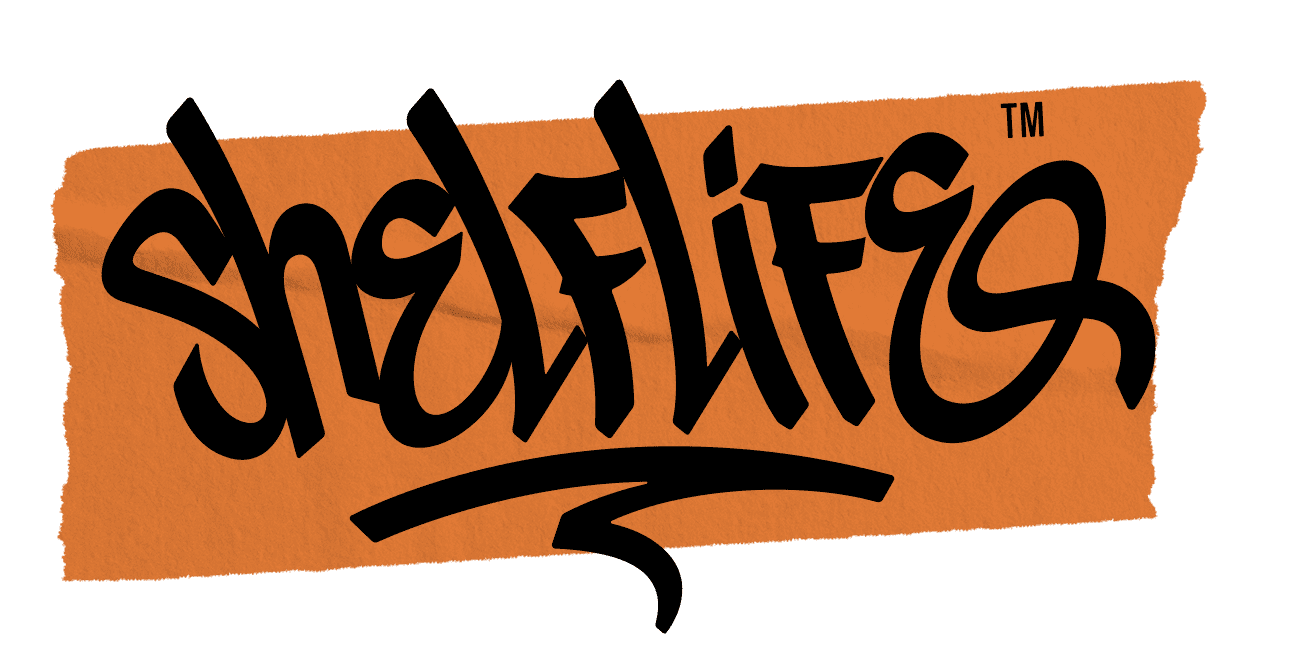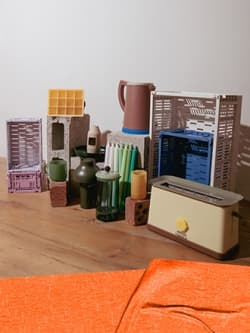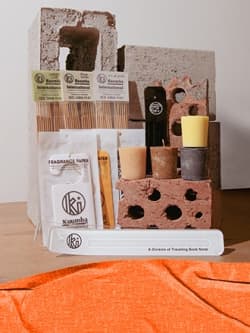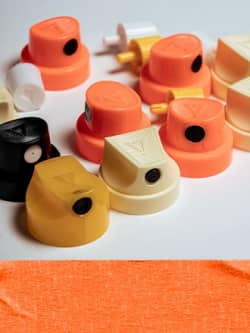Fake Friday: How to Spot a Fake

Not all things are created equal and this applies to everything from which brands are more popular than others, to the “fakeness” of replica sneakers. Waiting every month to see which store we’re featuring on Fake Friday can be as frustrating as waiting for that raffle winner email and so this month we’ve decided to give you a “how to” guide on simple ways to identify whether a sneaker or a seller is legit, and places to get your sneakers authenticated.
With the resell market getting overly saturated, we also see an increase in places selling inauthentic sneakers and it’s getting more and more difficult to tell what is real and what is not. Now, factories producing replicas can copy a shoe almost to the T and so it’s really hard to find indicators of fake sneakers. However there are some ways to tell if a sneaker is authentic, especially for more obvious fakes.

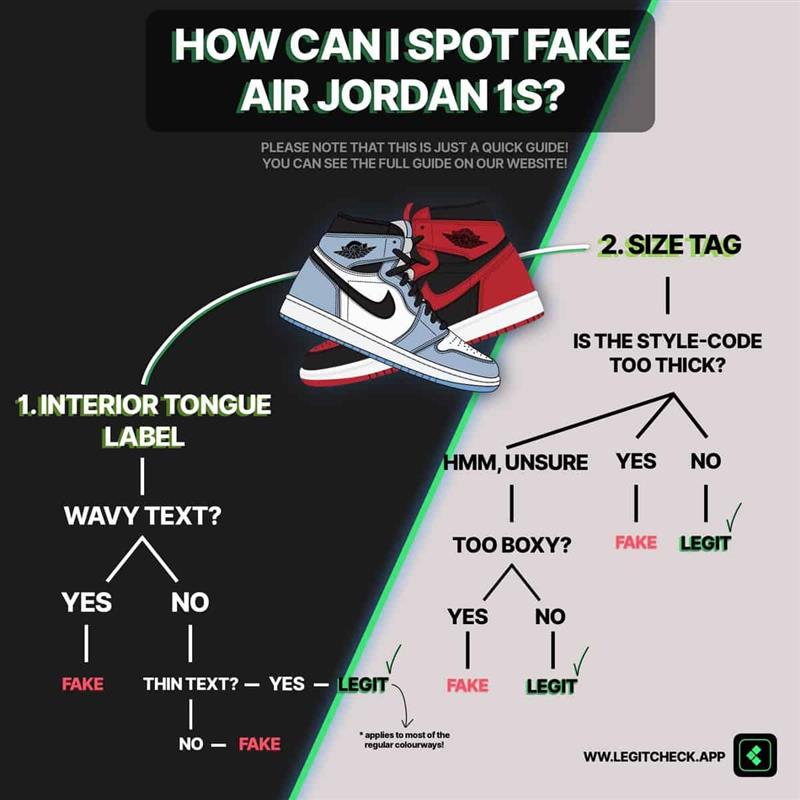


If you are going to buy some sneakers and have the chance to review them in person first… here are some indicators of reals vs dupes.
1. Box Label and Packaging:
When it comes to sneaker brands, especially those that fall into the realm of streetwear, the box is a key element.. Most fake Nike, Puma, Adidas, Yeezy etc. shoes don't come in a box, so they will try to sell them to you loose or wrapped in something other than a box.
In the event that you are given a box, pay close attention to the details on the box label and packaging you can check it to see if it is real. If it feels loose and made of lightweight cardboard, it's probably fake. More than that, the details on the box label and packaging are usually dead giveaways. Authentic sneakers usually have high-quality, clear, and consistent printing, including logos, product codes, and other relevant information. For example, all real Nike shoes have a SKU code on their box that is the same as what comes on the shoes. If you don't see a code or if it's erased, or doesn’t correspond with the one on the shoe, they may not be real.
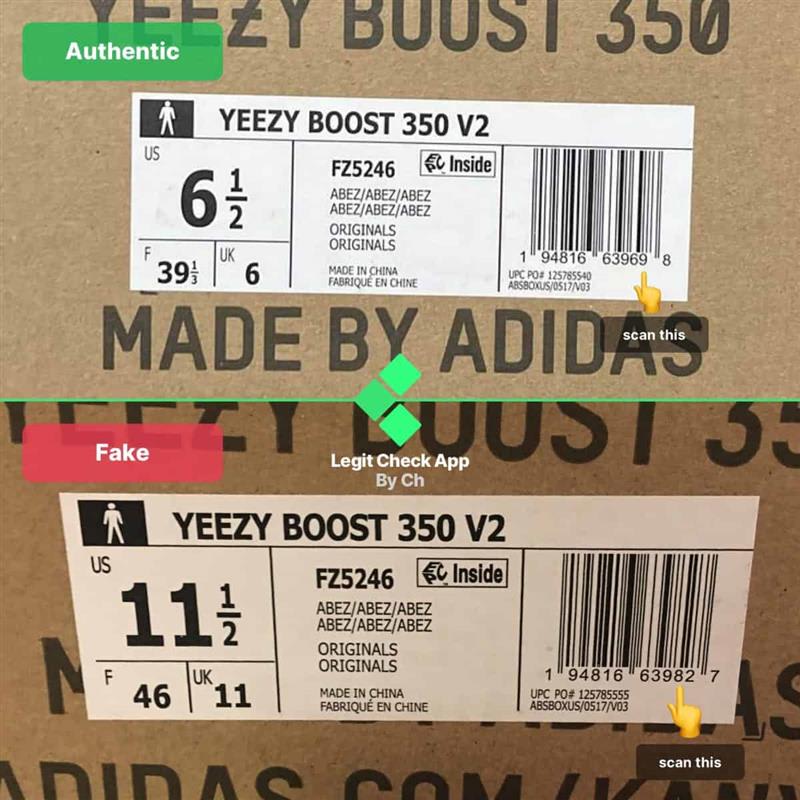
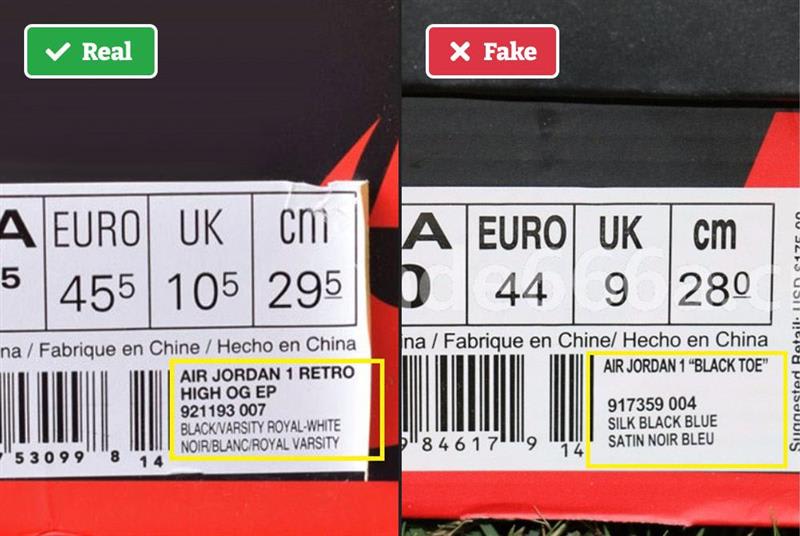


2. Actual Shoe Quality and Design:
Examine the overall quality of the sneakers. Authentic pairs are made with precision and attention to detail, resulting in neat stitching, precise cuts, and high-quality materials. Counterfeit sneakers may have loose threads, glue marks, or inconsistent construction.
Authentic sneakers use premium materials, and their texture reflects this quality. Counterfeit shoes might feel cheaper or flimsier due to inferior materials. Pay attention to the texture of the leather, suede, or other fabrics used.
Study the soles of the sneakers and compare them to known authentic models. The tread pattern and overall construction should match the official design. Any inconsistencies could indicate a fake pair.
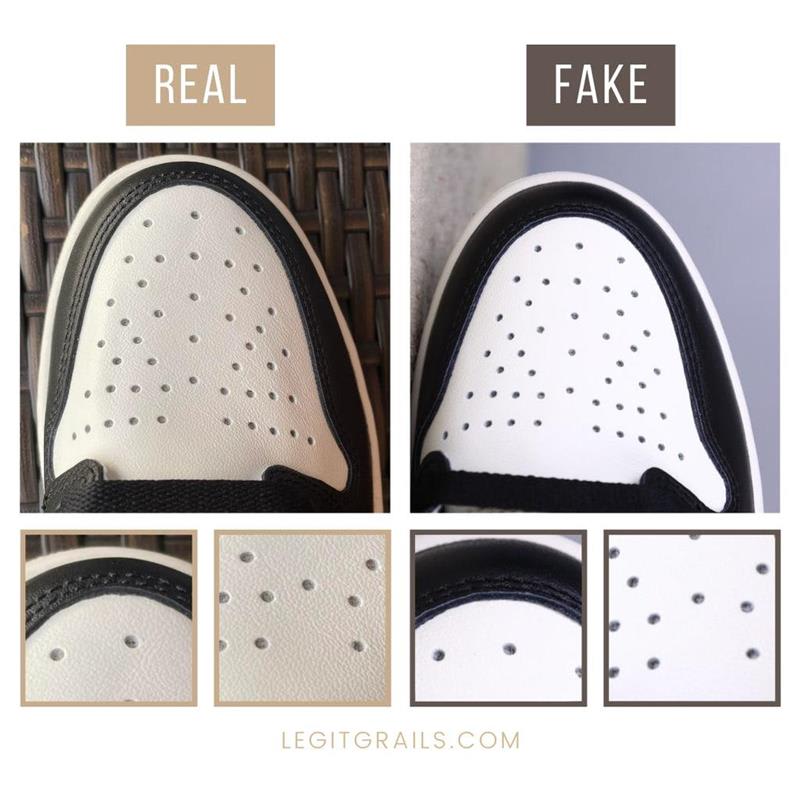

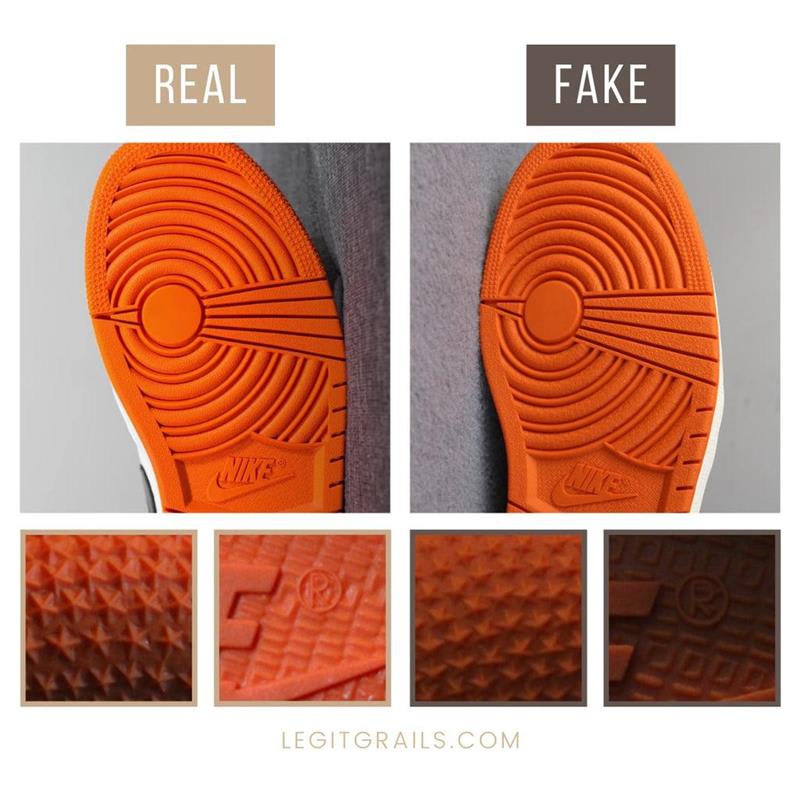
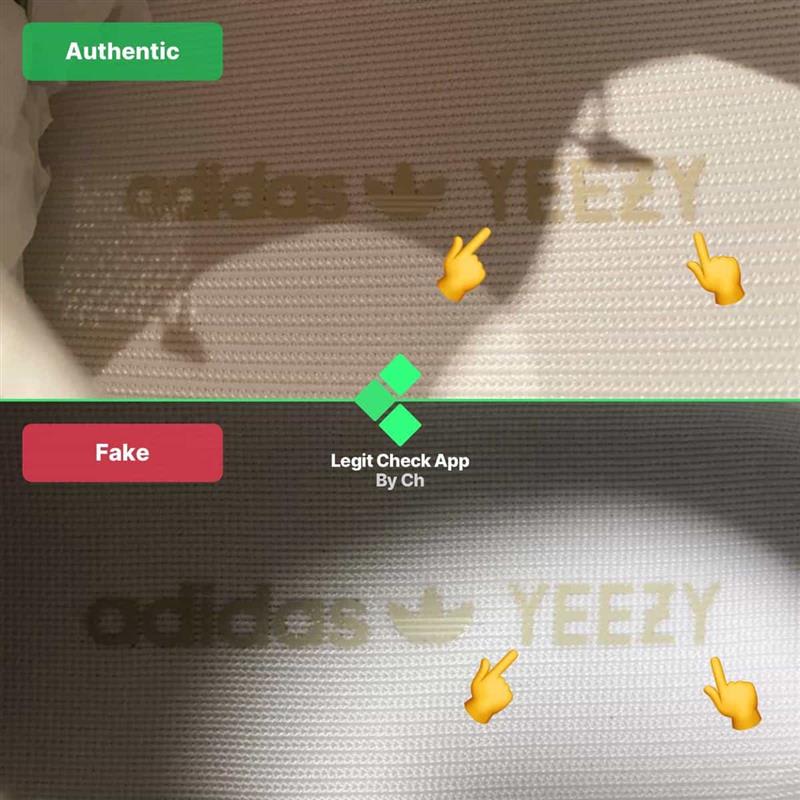




3. Logos, Branding & Labels:
A simple way to know that your sneakers are the real thing is to compare them directly with the model that is on the brand’s official website. You'll be able to see what the logo looks like, if it's in the right place etc. when looking at the logo, check for accurate placement, font styles, and colourways.
The SKU code located on the label on the side of the tongue is where you can find other key data. If a sneaker by a reputable brand doesn’t have such a label, red flags should definitely be raised. If it does, these labels mention the date the shoe was designed, so if it doesn't fit with what you know (around the time of the release date), it's definitely a fake.
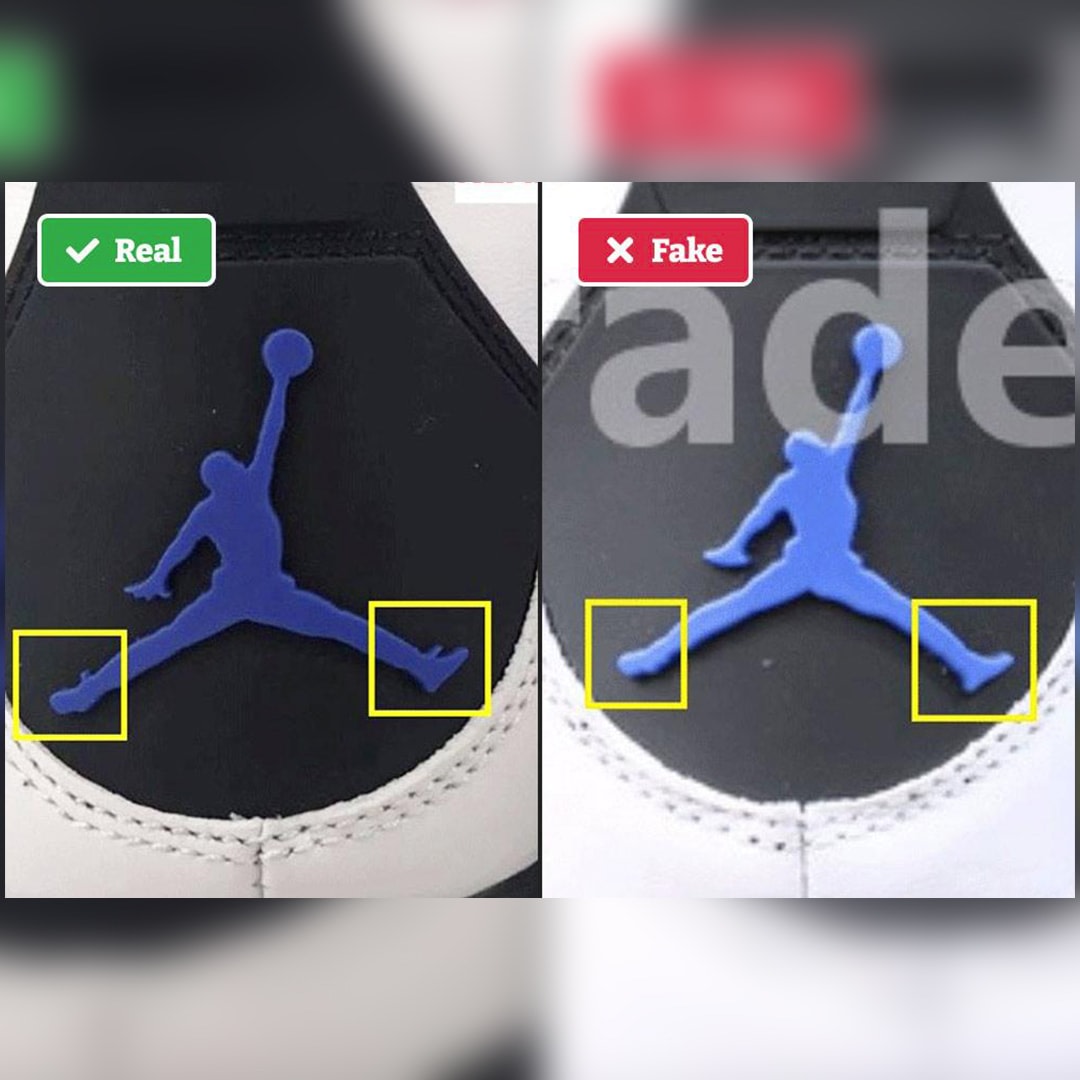

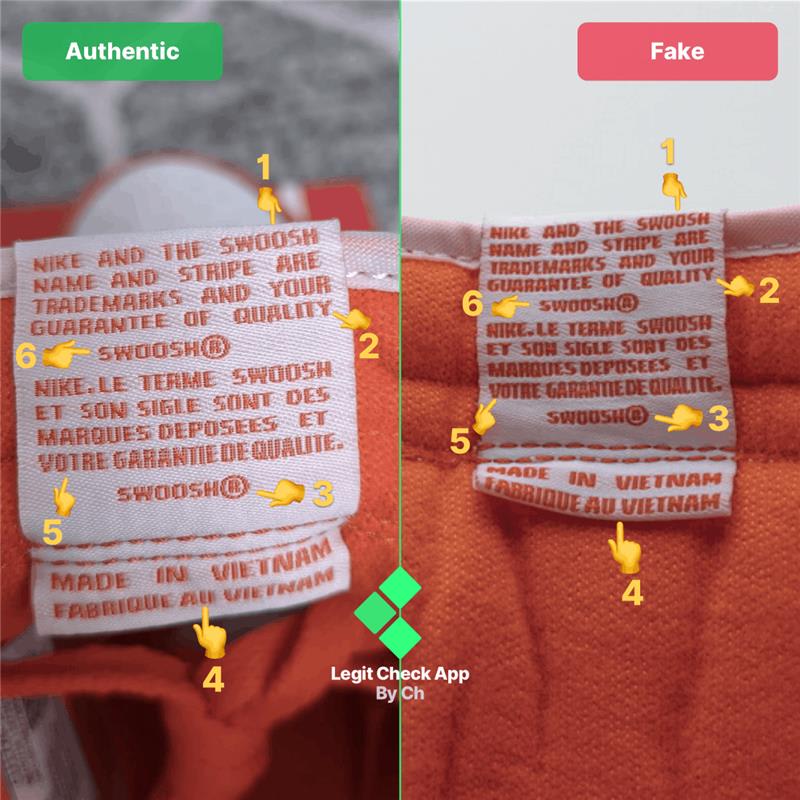
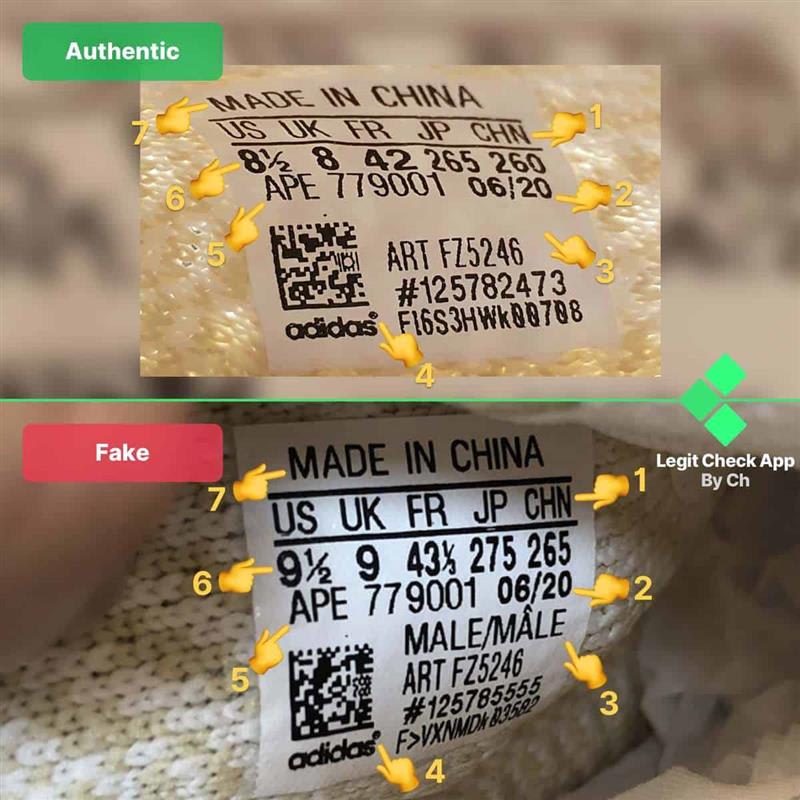




Online shopping is becoming more and more common and is how many people enter the sneaker world in the first place. Without seeing a product in person it can get tricky to tell authentic sneakers from fakes, but here’s what to pay attention to:
1. The store/seller:
The first thing you should do before hitting the buy or dm button is to check the seller- whether it be their Instagram “shop” or website. Look at the Instagram in-depth focusing on their amount of followers, comment section and any other indicators that might raise alarm bells. The website should be complete, with all relevant information available, relevant T’s & C’s and contact information.
When companies don’t get their stock directly from the brand’s, there are trustworthy sites where resellers have to check the authenticity of their product before selling it, so it would be a trustworthy way to buy. However, on sites like Footroen, Sneaker Zone or Facebook Marketplace there is no regulation process and so scamming is easy.
It should be noted that some sellers highlight that their product is fake and warn their buyers before they are surprised , but others tend to make misleading publications. First, check the seller's ratings. Check the opinions of other buyers and make sure they are not fake comments.

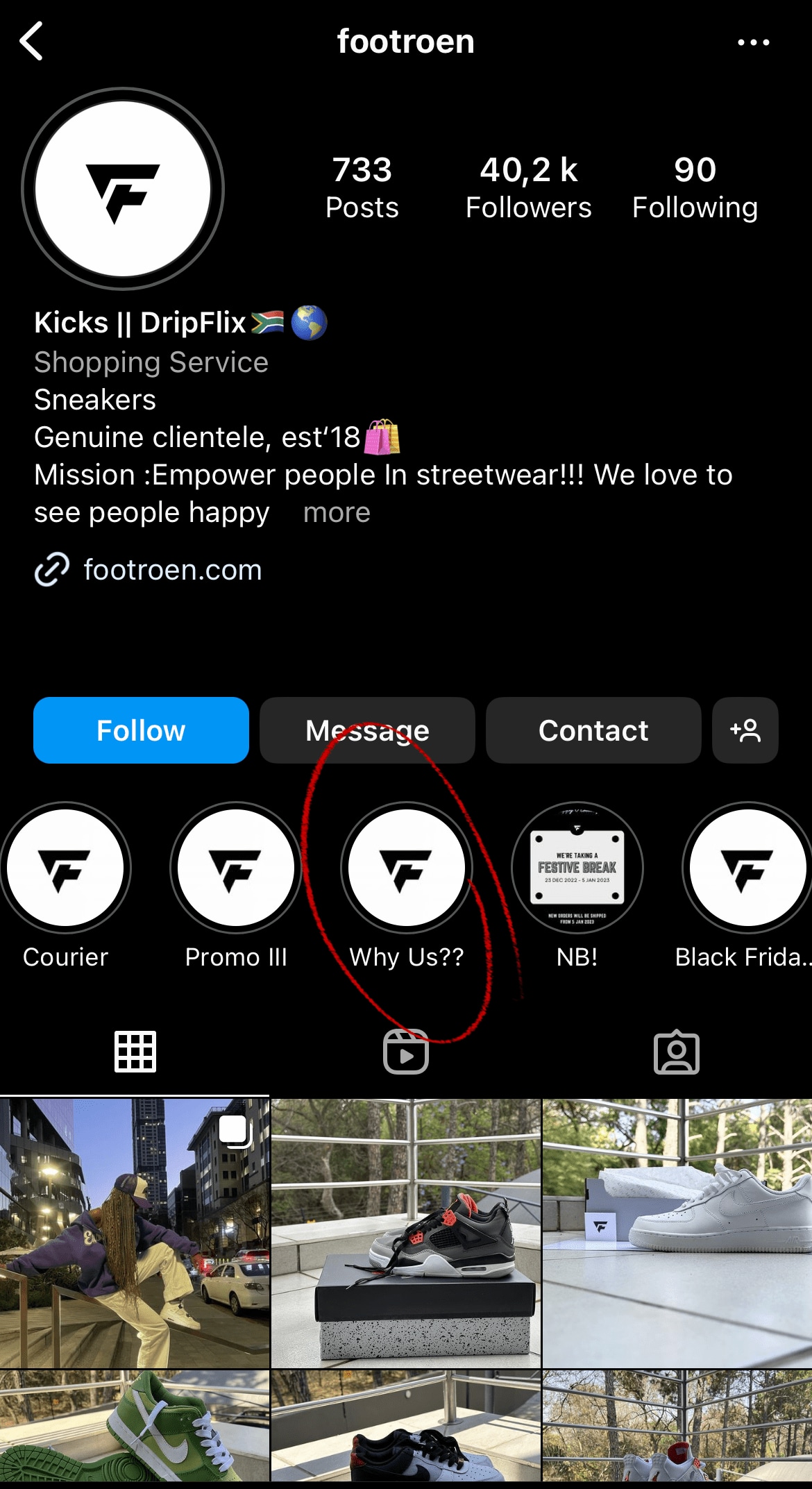


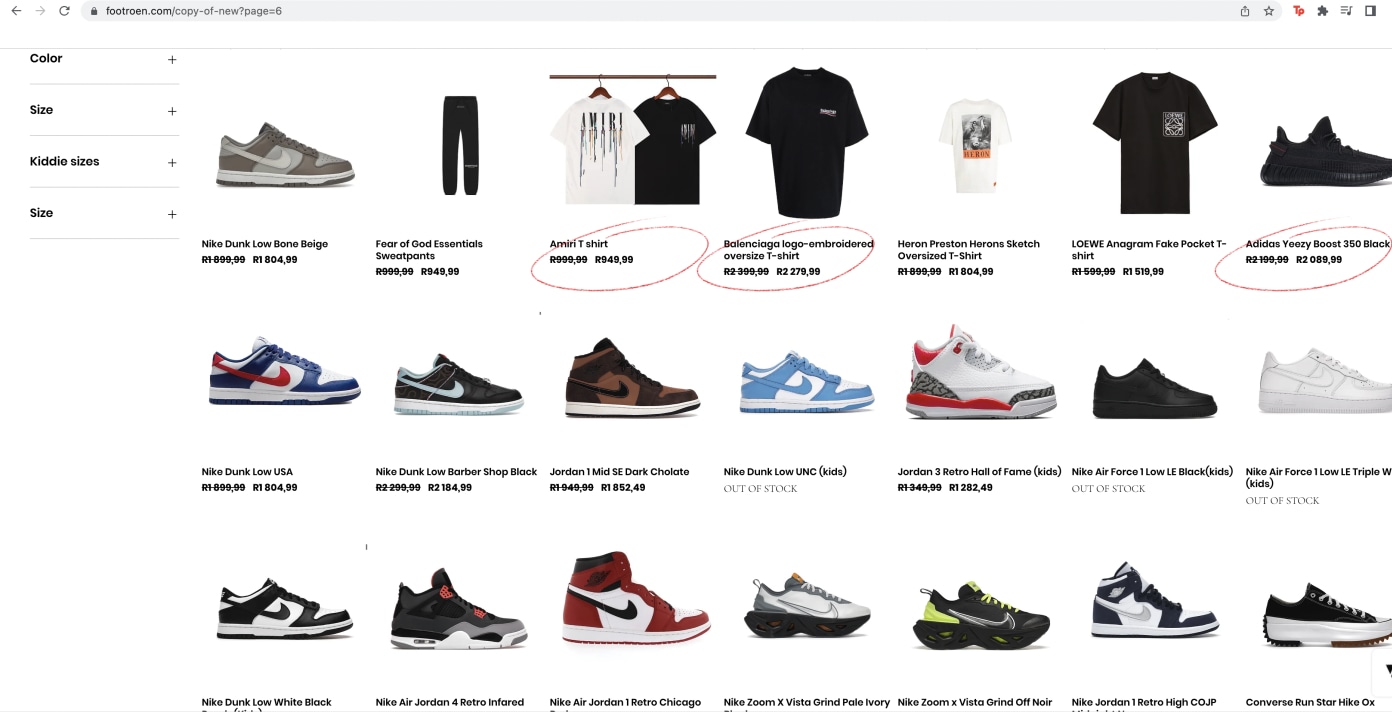



2. Price & Accessibility:
Price can be a relevant indicator. Most well-known brands have their sneakers on their website which should be used as a comparison when buying. Hyped sneakers or shoes that are difficult to find in stores, can command high prices. If you see ones that are too cheap, there is definitely something wrong.
Oftentimes, shops selling replicas will have almost every product- no matter how rare to find, on sale and available throughout the year.
If you know a product is sought-after and cannot be found on most well-known sites like Farfetch but are readily available in all size curves (and even worse, on sale) on a site or Instagram account, then it is likely a not authentic.
These types of offers are too good to be true so be especially careful.




3. Photos:
Avoid relying on products that only put the product photography that we see on the internet, especially if you’re unsure of the legitimacy of the seller or if it is not a reputable/well-known brand. You can for detailed photographs if possible and compare them with the original ones, just like the box.
To make it a little easier for you, we did the research, read the reviews and watched the videos so that you can know the places and apps that authenticate sneakers:
1. Legit App
This is an online service where you can get your products legit checked online by uploading images on mobile. Whether you are looking to resell or purchase a pre-loved item, Legit App can help authenticate and detect replicas.
2. Legitmark
Another online sneaker authentication site for collectors, resellers or anyone who just wants to know if what they bought is real. Here you can send through pics of the shoe labels and other details and will receive a response within 12-24 hours.
3. Story Cape Town
This Cape Town based store ensures that each and every item is authenticated as original, and verified to be in either new, unworn, or in acceptable pre-owned condition by trained expert staff.
4. GOAT
GOAT is another reputable online sneaker marketplace that verifies the authenticity of all sneakers before they are listed for sale. They offer a "GOAT Clean" service, which allows sellers to have their sneakers professionally authenticated.



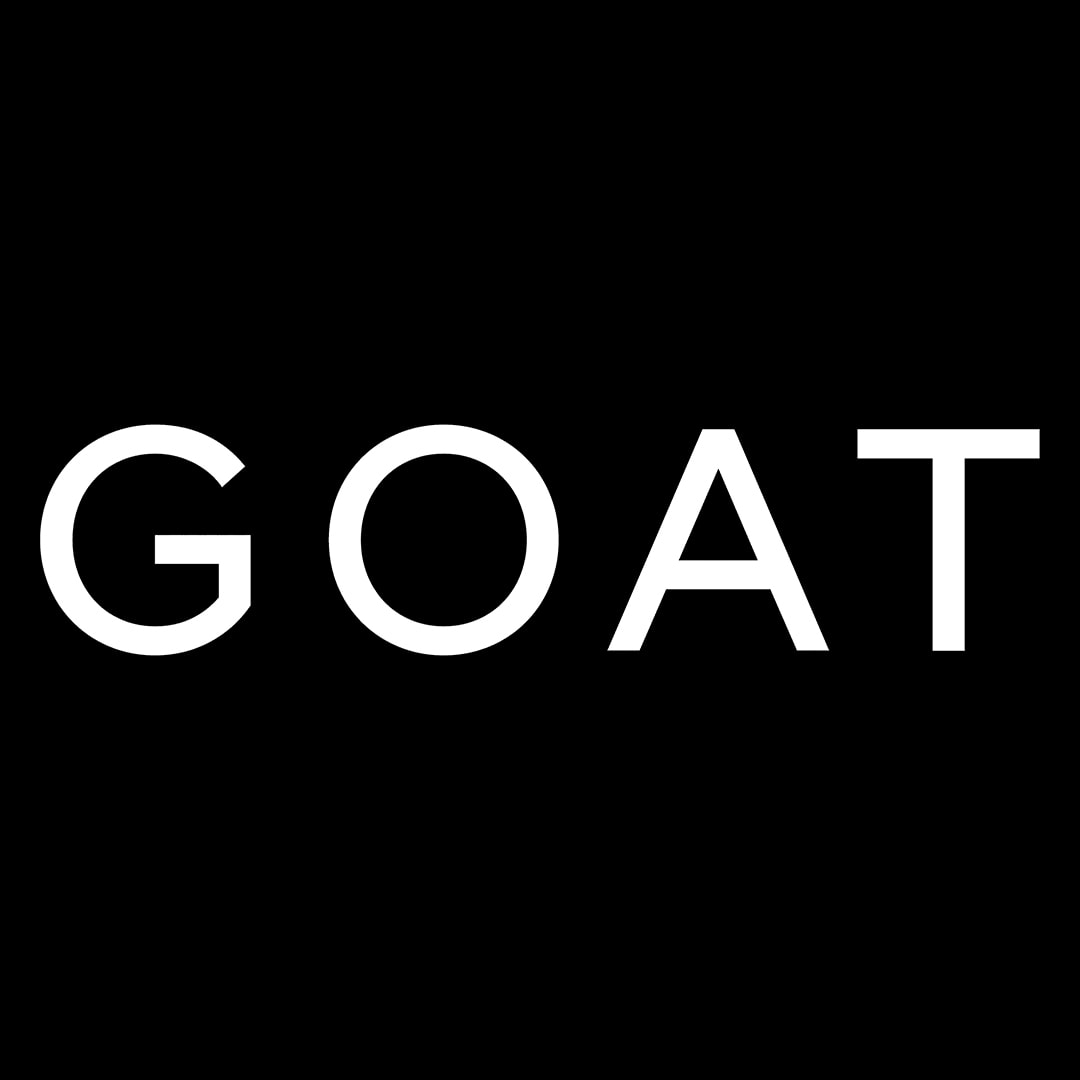




Although things change and in a few months’ time all of this can be different, we hope it helps keep you fresh and clean even when the streets get a bit too dirty.
